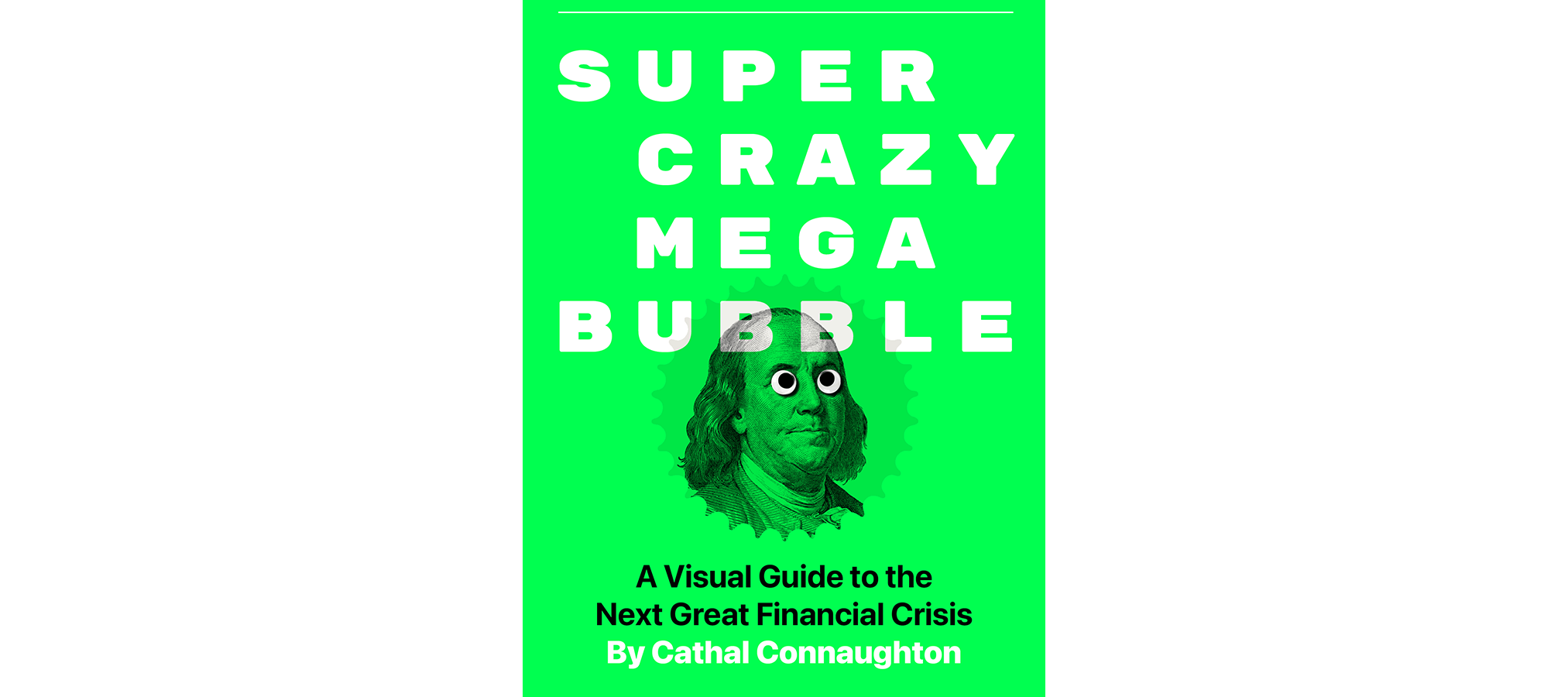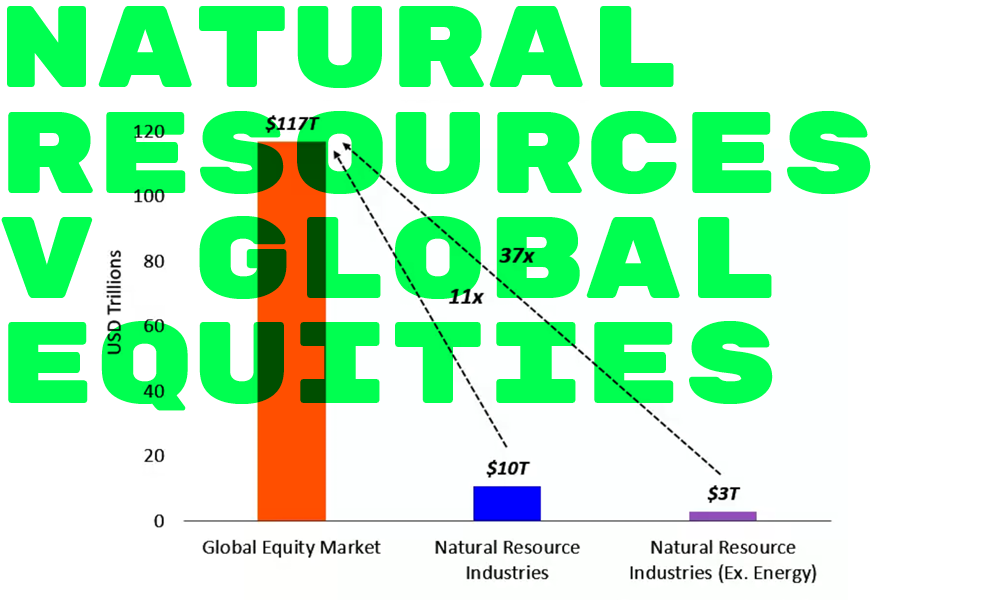Get Real
How to understand the devaluation of Western currencies against the world’s energy and natural resources.

As the world economy enters the danger zone, financial news becomes the news. And the stories are getting grimmer every week:
- The crypto bubble has started blowing up, exposing massive fraud by one of America’s biggest political donors.
- Britain looks to be exiting the first world — with one-in-three children living in poverty and more than 270,000 homeless. More on the UK here and here,
- Germany's leaders have decided to follow the UK's example, and are going full-steam into deindustrialization, handing the US a huge competitive advantage.
Illusions that decision-makers are competent or in control are shattering But most westerners remain mentally and financially unprepared for the bursting of an 80-year sovereign debt Superbubble.
These changes have been building for decades and are discussed in the updated version of the Superbubble ebook — available here — for free.

What 'getting real' means
Back in 2016, oddball billionaire Peter Thiel pointed out that the western financial system overvalues:
the world of bits, while most of the economy is the world of atoms. The world of bits is computers, the internet, software … And there's been narrow progress around bits, and less understanding of industries that are involved in atoms.
- Bits are the basic units of digital information.
- Atoms are the basic units of matter.
Bits can be created without limit on computers, while atoms are created by nature in finite amounts. They connect to two main types of financial asset:
- Intangible assets lack physical substance. Examples are digital currencies, patents, copyright, franchises, brand goodwill, trademarks, and software.
- Tangible assets are physical things such as precious metals, banknotes, coins, real estate, cash, inventory, and equipment.
Accelerated development in the world of bits fuelled tech-driven financial mega booms. Since the 1970s the notional value of intangible assets has grown to become 90% of all the value of the S&P 500.

Notional means a lot of that value exists within investors' minds and their spreadsheets And the western financial system now relies on treating fantasy valuations as real. Prediction: the chart below will see extreme corrections through 2023 and beyond.

Fantasy assets are unstable
Financial abstractions like currencies, bonds, and credit are crucial to civilization. They work like magic — moving the world’s resources, and allowing mass cooperation between strangers.
Financial abstractions are also much easier and cheaper to create than real stuff of value. And humans, being human, always create too much of a good thing. History shows we always overproduce abstract monetary assets — eventually destroying their value. And today, more than 97% of currency is purely digital information on commercial banks' server farms.
The US dollar is the Superbubble
And the biggest monetary hallucination of all is the US dollar. It is the world’s reserve currency and must be obtained by nations wanting access to essential resources.
Put simply: American bits control the world's atoms. And that control has allowed the US — and allies — to control and consume a much higher percentage of the world's natural resources than would be possible otherwise.
Dollars can be typed into existence by the trillion and bazillion — and an ocean of dollars pumped the global debt Superbubble to insanely bloated — and unstable — state we see today.
The global currency system based on the greenback requires:
- the overvaluation of Western financial assets, and
- the undervaluation of the world's natural resources — especially energy and fossil fuels.
Now, across the world, people are waking up to the fictitious nature of much of western “wealth”.
'Getting real' means exposing the fictional nature of those valuations. Such corrections — or monetary resets — happen about once every human lifetime and often are chaotic, violent and erupt into war.
This time around, the world’s autocrats are attempting to wrest control of their nation’s natural resources and manufactured goods from the Western financial system.
I don’t know if they will succeed, but they are exploiting the great weakness of western economies: unpayable debt and currency inflation
How bad can it get?
Inflation is the process by which the world economy 'gets real'. Inflation means currencies become worth less at home and abroad. And it is creating a wage-price spiral:
- Prices increase due to rising demand and higher costs.
- Wages increase to keep up with prices.
- Increased labour costs push prices even higher.
- Workers demand higher wages.
And the typical response of governments to rising inflation is to print money — further decreasing the purchasing power of a currency — and lowering a nation's standard of living.
The US dollar and other major currencies are worth less if they cannot be printed to import the real stuff — the energy and resources — their societies need.
And Vladimir Putin named the problem — and his solution— in a recent speech in St. Petersburg:
"Under this cloud of inflation, many developing nations are asking a good question: why exchange goods for dollars and euros that are losing value right before our eyes? The conclusion suggests itself: the economy of mythical entities is inevitably being replaced by the economy of real values and assets"
All this means that we are getting closer to the blow-up of a western debt Superbubble.
Inflationary processes shatter illusions of national wealth and can bring societies to their knees. Taken to extremes, we get hyperinflation — a mass psychological panic, where people try to swap rapidly devaluing currency units for something 'more real' — as quickly as they can.
Fingers-crossed things don't get too bad. But the extremely low quality of western leaders make bad outcomes more likely than they need to be. And that will be very good news for the producers of natural resources and real 'stuff' — and bad news for holders of western financial assets and currencies.
Anyway, that's my attempt to simply state the biggest economic change happening on the planet.
Let me know how I did.
x C x
